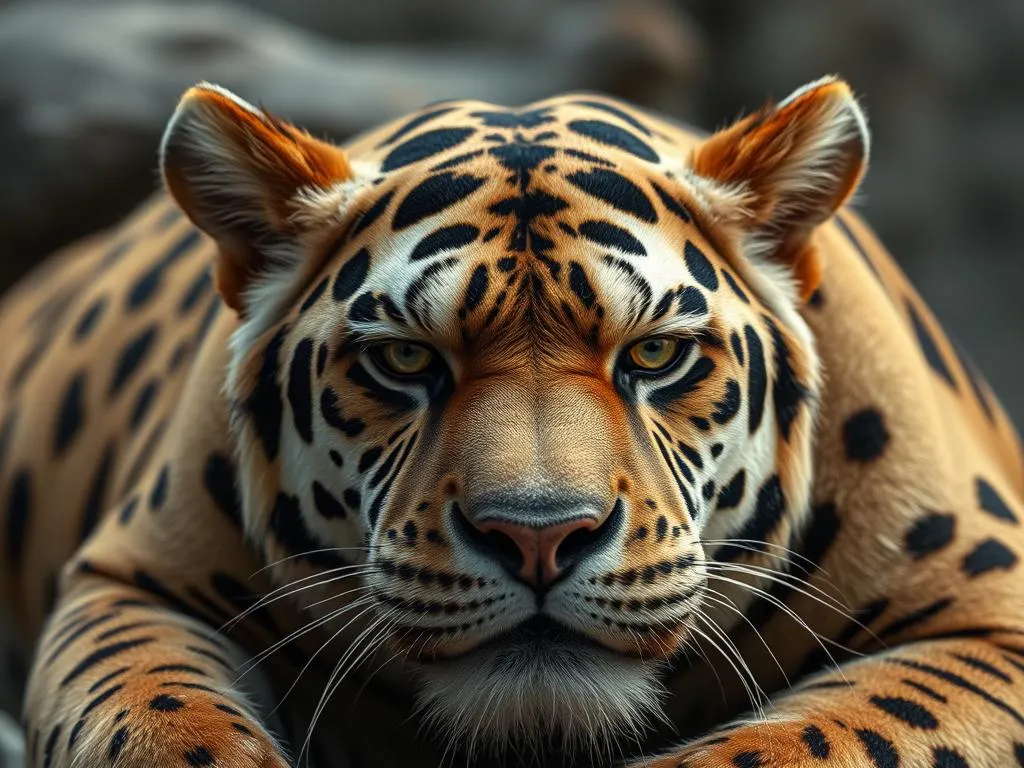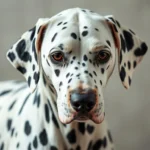
Introduction
Dog breeds are a fascinating aspect of our canine companions, each with unique traits, characteristics, and histories. Among the myriad of breeds, the Chonzer stands out as a delightful and affectionate hybrid. As a mix of the Cocker Spaniel and the Bichon Frise, the Chonzer combines the best attributes of both parent breeds. Understanding different dog breeds is crucial for potential dog owners, ensuring they find a pet that fits their lifestyle and family dynamics. This article delves into the enchanting world of the Chonzer, exploring its traits, care needs, and how it compares to similar breeds.
Overview of Dog Breeds
Dog breeds are specific types of dogs that share distinct physical and behavioral traits. These characteristics can include size, coat type, temperament, and health predispositions. Recognizing these traits is essential for potential owners, as it helps in selecting a breed that aligns with their living situation and family lifestyle.
Dog breeds are often classified into various categories, such as working, herding, toy, and hound. Each category encompasses breeds that excel in specific tasks or exhibit particular behaviors. Popular breeds like the Labrador Retriever, German Shepherd, and Golden Retriever are well-known for their loving nature and versatility, but the Chonzer offers a unique charm that deserves attention.
What is a Chonzer?
The Chonzer is a hybrid breed resulting from the cross between a Cocker Spaniel and a Bichon Frise. This delightful mix inherits qualities from both parent breeds, making it a beloved choice among dog enthusiasts. The Chonzer is known for its friendly and sociable nature, making it an excellent companion for families and individuals alike.
Originating in the United States, the Chonzer was bred to combine the Cocker Spaniel’s playfulness and the Bichon Frise’s affectionate demeanor. These dogs typically exhibit a variety of physical traits, including a soft, curly coat that can come in various colors such as white, tan, or a mix of both.
Physical Characteristics of the Chonzer
Size and Weight Range
Chonzers are small to medium-sized dogs, typically weighing between 15 to 30 pounds. Their height usually ranges from 10 to 15 inches at the shoulder, making them a manageable size for both apartments and houses.
Coat Type and Grooming Needs
The coat of a Chonzer is one of its most charming features. It tends to be soft, fluffy, and can be either wavy or curly, reminiscent of the Bichon Frise’s coat. Regular grooming is essential to keep the coat healthy and free from matting. Owners should brush their Chonzer at least two to three times a week and schedule professional grooming every few months.
Common Color Patterns and Markings
Chonzers can come in a variety of colors, including:
- White
- Tan
- Brown
- A combination of the above
Some may even have unique markings, such as spots or patches, adding to their visual appeal.
Distinctive Features
The Chonzer’s expressive eyes, long ears, and fluffy tail contribute to its adorable appearance. Their eyes are typically round and dark, exuding a friendly and curious expression. The ears are long and floppy, covered in soft fur, while their tails are often carried high, reflecting their cheerful disposition.
Temperament and Behavior
General Personality Traits
The Chonzer is known for its friendly, playful, and affectionate nature. These dogs thrive on social interaction and are often happiest when they are part of family activities. Their outgoing personality makes them an excellent choice for families with children or other pets.
Social Behavior with Humans and Other Pets
Chonzers are typically very social and get along well with both humans and other animals. Their gentle demeanor makes them great companions, and they often bond closely with their owners. Early socialization is important to ensure they grow up to be well-adjusted and confident pets.
Energy Levels and Playfulness
With moderate energy levels, Chonzers enjoy playtime but are also content to relax with their family. Daily walks and interactive play sessions are essential to keep them happy and healthy. Their playful nature means they love toys and games, making them entertaining companions.
Trainability and Intelligence
Chonzers are intelligent dogs that respond well to positive reinforcement training methods. They are eager to please their owners, which makes them relatively easy to train. Consistency and patience are key, as with any breed, but their willingness to learn can make training a rewarding experience.
Health Considerations
Common Health Issues in Chonzers
Like any breed, Chonzers may be prone to certain health issues inherited from their parent breeds. Common concerns include:
- Ear infections (due to their floppy ears)
- Eye problems (such as cataracts)
- Hip dysplasia
- Allergies
Regular veterinary check-ups can help identify and address these issues early.
Lifespan Expectations
The average lifespan of a Chonzer is typically between 12 to 15 years, which is similar to many small dog breeds. Proper care, a balanced diet, and regular exercise can contribute to a long and healthy life.
Importance of Regular Vet Check-Ups
Routine veterinary visits are crucial for maintaining the health of your Chonzer. These check-ups allow for vaccinations, dental care, and monitoring for any potential health issues.
Preventive Care Tips
To ensure a healthy lifestyle for your Chonzer, consider the following preventive care tips:
- Keep up with vaccinations and parasite control.
- Provide a balanced diet formulated for small breeds.
- Encourage regular exercise to maintain a healthy weight.
- Schedule regular grooming sessions to prevent matting and skin issues.
Ideal Living Conditions for a Chonzer
Best Environments
Chonzers adapt well to various living situations, whether in an apartment or a house with a yard. However, they thrive best in environments where they can be close to their families. They enjoy having space to play and explore but do not require vast amounts of space.
Exercise Requirements and Activities
While Chonzers are moderate-energy dogs, they still need daily exercise to stay healthy. Short walks, playtime in the yard, and interactive games like fetch or tug-of-war are excellent ways to keep them active and engaged.
Socialization Needs
Early socialization is critical for a well-rounded Chonzer. Exposing them to various environments, people, and other pets helps them develop confidence and good behavior patterns.
Ideal Family Dynamics
Chonzers are generally good with children and can coexist peacefully with other pets. Their playful nature makes them great companions for kids, and they often enjoy joining in on family activities.
Care and Maintenance
Grooming Needs
Maintaining a Chonzer’s coat requires regular grooming. Owners should brush their dog several times a week to prevent matting and keep their fur healthy. Bathing should occur as needed, typically every four to six weeks, depending on the dog’s activity level and coat condition. Nail trimming and ear cleaning are also important parts of their grooming routine.
Diet and Nutrition Recommendations
A balanced diet is essential for a Chonzer‘s health. High-quality dog food formulated for small breeds should provide the necessary nutrients. Always consult your veterinarian for specific dietary recommendations based on your dog’s age, weight, and health status.
Training Tips and Obedience Strategies
Positive reinforcement is the most effective training method for Chonzers. Using treats, praise, and playtime as rewards can motivate them to learn commands and good behavior. Consistent training sessions and socialization outings will help them develop into well-mannered pets.
Mental Stimulation Activities
In addition to physical exercise, Chonzers benefit from mental stimulation. Puzzle toys, treat-dispensing toys, and interactive games can keep their minds engaged and reduce boredom-related behaviors.
Comparing the Chonzer with Other Breeds
Brief Comparison with Cocker Spaniel and Bichon Frise
The Chonzer shares traits with both the Cocker Spaniel and Bichon Frise. Cocker Spaniels are known for their affectionate nature and are often larger than Chonzers. In contrast, Bichon Frises are known for their lively attitude and smaller size. While both parent breeds are playful, the Chonzer often strikes a balance, offering the best of both worlds.
Pros and Cons of Owning a Chonzer Versus Similar Breeds
Pros:
– Friendly and sociable
– Adaptable to various living situations
– Moderate exercise needs
Cons:
– Requires regular grooming
– May inherit health issues from parent breeds
Popularity in Different Regions
The Chonzer is gaining popularity among dog lovers, particularly in urban areas where smaller, adaptable breeds are in demand. Their charming personality and manageable size make them a favorite among families seeking a loving companion.
Conclusion
The Chonzer is a delightful blend of two beloved breeds, offering unique traits and a loving disposition. With proper care, training, and socialization, these dogs can thrive in various environments and become cherished family members. Potential dog owners should consider the Chonzer for its adaptability, friendly nature, and affectionate spirit. Understanding responsible dog ownership and breed selection is crucial in ensuring a happy and fulfilling relationship with your furry friend.
FAQs about Chonzers
What is the average cost of a Chonzer?
The average cost of a Chonzer can range from $800 to $2,000, depending on the breeder and location. Always ensure you are purchasing from a reputable breeder who prioritizes the health and well-being of their dogs.
How much exercise does a Chonzer need daily?
A Chonzer should receive at least 30 minutes of exercise each day. This can include walks, playtime, and mental stimulation activities.
Are Chonzers hypoallergenic?
While no dog is completely hypoallergenic, Chonzers may be suitable for individuals with allergies due to their low-shedding coats. However, it’s essential to spend time with the breed before making a decision.
What training methods work best for Chonzers?
Positive reinforcement methods, such as treats and praise, are the most effective for training Chonzers. They respond well to encouragement and enjoy learning new commands.
How do Chonzers do with children and other pets?
Chonzers generally do well with children and other pets. Their friendly and playful nature makes them great companions for families, but early socialization is key to ensuring they are comfortable around kids and other animals.









